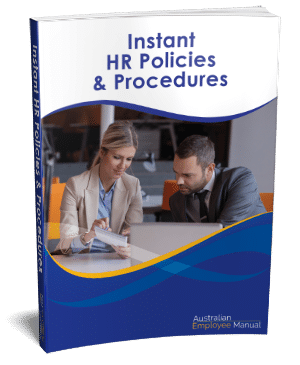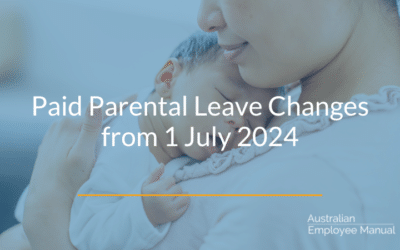A new year and the return to work after school holidays often brings turnover with it. One of the least understood parts of human resources is how much notice does an employee need to give when they resign from your business.
How much notice is required when resigning?
Every award or industrial agreement outlines the minimum notice periods required. Always check the relevant award for notice clauses first, as well as reviewing any contracts the employee signed when they started with you.
Notice is based on the employee’s continuous service with you, which includes periods of authorised paid and unpaid leave.
Most awards include a sliding scale of notice requirements. For example, the Clerks – Private Sector Award requires an employee to give the following minimum notice period when resigning:
Period of Continuous Service
1 year of less: 1 week
More than 1 year – 3 years: 2 weeks
More than 3 years – 5 years: 3 weeks
More than 5 years: 4 weeks.
Remember, that employment contracts can’t specify less than the minimum requirements set out in the relevant award or agreement that covers the employee.
Also remember that notice is not extended by any public holidays, or leave taken during the notice period.
Are casual employees required to give notice?
No. Generally people paid as a casual employee are not required to give any notice as casuals are considered to be employed from shift to shift.
However, this requirement is currently under consideration by the Fair Work Commission as part of their Modern Award Review.
What notice is required if an employee is on probation?
If the employee is on probation, then the 1 year or less notice period applies.
Does notice have to be in writing?
While written notice is best practice, a resignation can be given verbally. If the person resigns verbally, request that they follow it up in writing to reduce the risk of misunderstandings around dates.
When is the notice period counted from?
The notice period starts the DAY AFTER the person hands you their resignation and ends on their last day of employment with you.
Can I withhold pay for insufficient notice?
Most awards and modern agreements allow the employer to withhold wages owed under the award for insufficient notice. However, there are often rules that you need to take into account which may include that:
- The person must be over 18.
- Deductions can only be from wages owed and can’t be deducted from other entitlements such as leave accrual or over award payments.
- The deduction can’t be unreasonable in the circumstances of the case.
- There are often maximums you can deduct. For example, under the Clerks – Private Sector Award, you can only deduct a maximum of one week’s wages.
Can I refuse an employee’s resignation?
No. There is no discretion whether or not to accept a resignation.
However, if the resignation came about:
- in the middle of an argument or conflict,
- as a result of a management action that forced the employee to resign (e.g. discriminatory action or requesting them to do a task that was unreasonable or unethical),
- during some other special circumstance (e.g. intense grief at a life event),
then the best course of action is to advise the employee to sleep on their decision and come back to talk with you in a day or two.
The reason for this cautious approach is that there have been many cases where the employer accepted a resignation issued in the heat of the moment and then the person took their case to a workplace tribunal. Tribunals have often decided in these situations that the person had not resigned but had been dismissed and issued a penalty to the employer.
Can an employee change their mind and withdraw their resignation?
Some employees may decide they want to withdraw their resignation after they have handed it in.
This is where managers have discretion. Managers can choose to allow the person to withdraw their resignation or may decide to let the resignation run its course.
Things to consider before agreeing to withdraw the resignation:
- Was it made in the heat of the moment during workplace conflict or other special circumstance? If so, then you may want to consider accepting the withdrawal.
- Is the employee particularly valuable to the workplace or a high performer?
- How easy will it be to fill the role vacancy?
Can an employee go on leave during their notice period?
Employees can take approved leave during their notice period. However, you may request that any paid sick or carers leave is accompanied by appropriate evidence (e.g. a medical certificate).
Seek legal advice before attempting to direct an employee to take any accrued leave during the notice period as it is rare that you can force an employee to take leave during notice.
Can I pay out the employee rather than having them work their notice period?
As an employer, you can allow the person to work until the end of the notice period, can choose to have the employee stop working and pay out their entitlements in lieu of notice or a combination of the above.
In many cases, paying out an employee in lieu of notice is a risk reduction strategy to reduce the risk of fraud, potential conflict or unrest within the team, and supplier relationship management. Each situation needs to be considered on its merits and taking into account the individual, the team and the workplace culture.
The specific provisions relating to payment in lieu of notice can be found in the relevant award or agreement that covers the employee.
One thing to remember, if you pay out the employee in lieu of notice then leave does not continue to accumulate during the notice period. It only accumulates if the person works during the notice period.
Not sure of your rights or responsibilities? Contact the Fair Work Ombudsman on 13 13 94.




